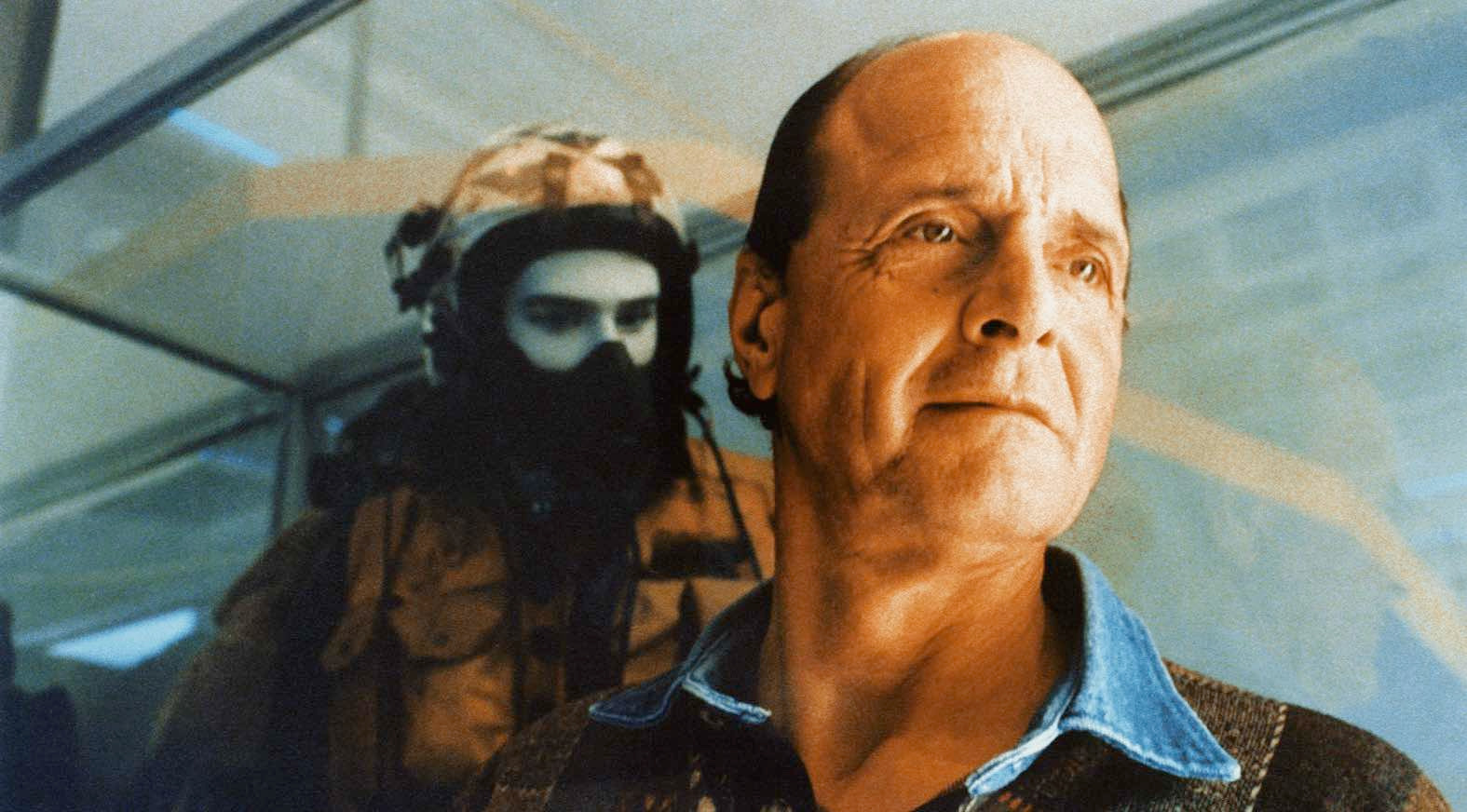"Men are often haunted,'' Werner Herzog tells us at the beginning of "Little Dieter Needs to Fly.'' "They seem to be normal, but they are not.'' His documentary tells the story of such a haunted man, whose memories include being hung upside down with an ant nest over his head, and fighting a snake for a dead rat they both wanted to eat.
The man's name is Dieter Dengler. He was born in the Black Forest of Germany. As a child, he watched his village destroyed by American warplanes, and one flew so close to his attic window that for a split-second he made eye contact with the pilot flashing past. At that moment, Dieter Dengler knew that he needed to fly.
Dengler is now in his 50s, a businessman living in Northern California. He invites us into his home, carefully opening and closing every doorover and over again, to be sure he is not locked in. He shows us the stores of rice, flour and honey under his floor. He obsesses about being locked in, about having nothing to eat. He tells us his story.
As an 18-year-old, he came penniless o America. He enlisted in the Navy to learn to fly. He flew missions over Vietnam, but "that there were people down there who suffered, who died--only became clear to me after I was their prisoner.'' He was shot down, made a prisoner, became one of only seven men to escape from prison camps and survive. He endured tortures by his captors and from nature: dysentery, insect bites, starvation, hallucinations.
The thing about story-telling is that it creates pictres in our heads. I can "see'' what happened to Dieter Dengler as clearly as if it has all been dramatized, and his poetry adds to the images. "As I followed the river, there was this beautiful bear following me,'' he remembers. "This bear meant death to me. It's really ironic--the only friend I had at the end was death.''
At another point, standing in front of a giant tank of jellyfish, he says, "This is basically what Death looks like to me,'' and Herzog's camera moves in on the dreamy floating shapes as we hear the sad theme from "Tristan and Isolde.'' Now here is an interesting aspect. Dieter Dengler is a real man who really underwent all of those experiences (and won the Medal of Honor, the D.F.C and the Navy Cross because of them). His story is true. But not all of his words are his own. Herzog freely reveals in conversation that he suggested certain images to Dengler. The image of the jellyfish, for example--"that was my idea,'' Herzog told me. Likewise the opening and shutting of the doors, although not the image of the bear.
"I believe the common denominator of the Universe is not harmony, but chaos, hostility and murder."














.jpg)